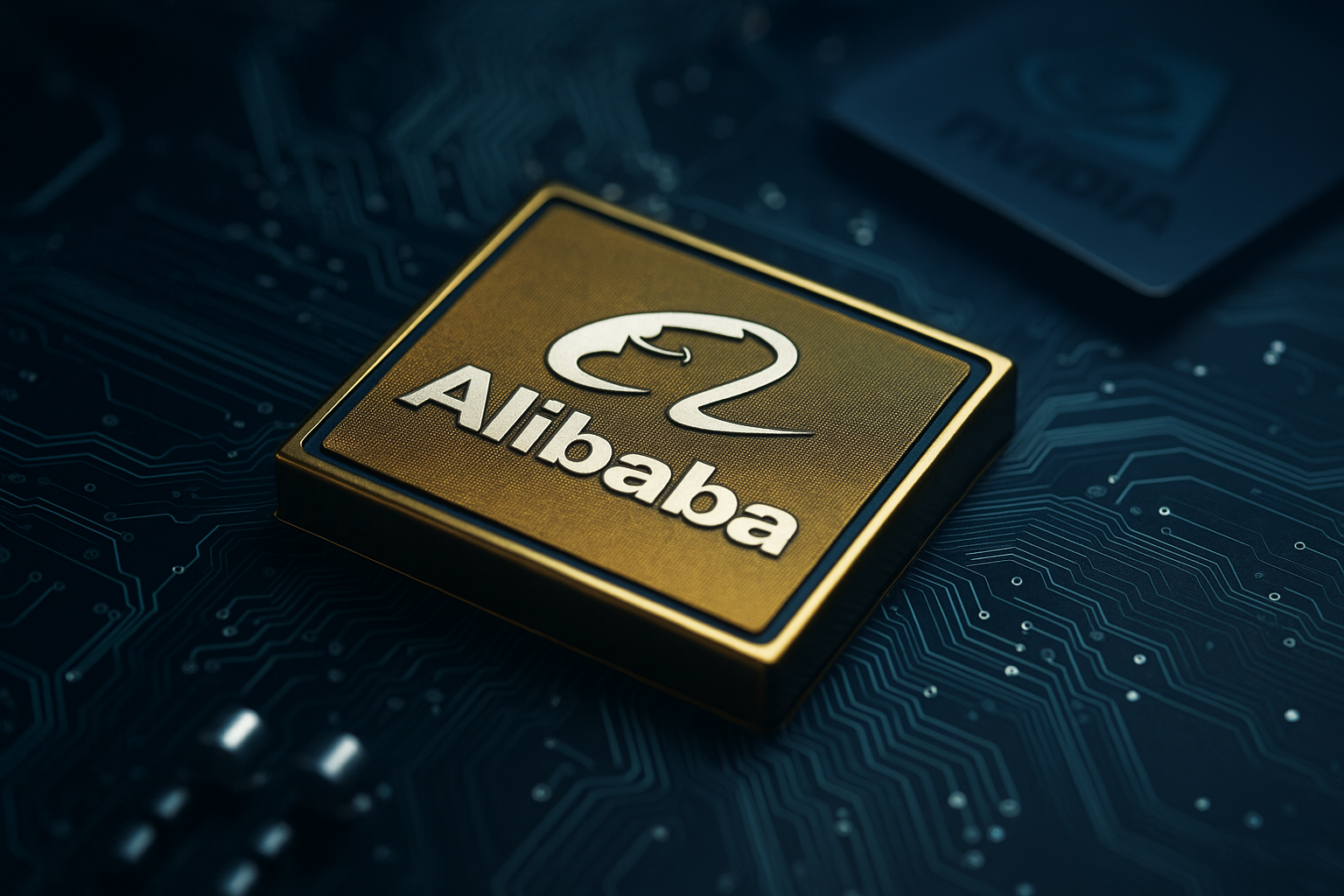Alibaba Unveils New AI Chip to Fill Nvidia Void and Boost China’s Tech Independence
By Tredu.com • 8/29/2025
Tredu

Alibaba Steps Into the Chip Race
Alibaba has unveiled a domestically developed AI chip designed to fill the Nvidia void in China, a bold move that underscores Beijing’s push for technological independence. The new processor, aimed primarily at inference tasks, highlights Alibaba’s strategy to reduce reliance on U.S. suppliers while strengthening its cloud business.
The announcement comes amid continued export restrictions on high-powered Nvidia chips, such as the H100 and Blackwell series, which have left Chinese companies scrambling for alternatives. Alibaba’s solution could provide much-needed relief, especially as demand for artificial intelligence accelerates across sectors from e-commerce to cloud computing.
A Chip Built for Versatility
Unlike previous Alibaba chips tailored for specific tasks, this new model is more versatile, supporting a broader range of inference workloads. Early reports suggest the chip has been designed to ensure smooth compatibility with existing Nvidia software stacks, easing the transition for developers.
By focusing on inference—the process of deploying trained AI models in real-world applications, Alibaba positions its chip as a practical workhorse for China’s expanding digital economy. From recommendation engines to generative AI tools, the company aims to keep pace with global innovation while bypassing geopolitical barriers.
Cloud Growth as the Core Driver
Alibaba Cloud, the company’s crown jewel, is central to the new chip strategy. The cloud division reported a 26% year-over-year revenue surge in the April–June quarter, fueled by rising AI adoption. Executives expect the new chip to further accelerate growth by offering enterprise clients a cost-effective, locally made option for AI deployment.
“Our goal is to empower Chinese developers and businesses with world-class hardware that integrates seamlessly into the Alibaba Cloud ecosystem,” an executive familiar with the project said.
Nvidia Void Creates Opportunity
The Nvidia void in China, caused by Washington’s export restrictions, has created both challenges and opportunities. While Nvidia’s scaled-back H20 chip is still available in China, demand for higher-end models remains unmet. Alibaba’s entry aims to capture this gap by offering a homegrown processor that balances performance with accessibility.
Market reaction has been swift: Alibaba’s U.S.-listed shares rose more than 3% in premarket trading following the announcement, reflecting investor confidence in the company’s ability to innovate under pressure.
Geopolitical Context
Alibaba’s chip launch is not just a commercial move; it’s a strategic step in China’s broader tech sovereignty campaign. Beijing has been clear that reducing reliance on U.S. technology is a national priority, and domestic champions like Alibaba, Huawei, and Baidu are at the forefront of this effort.
While the chip cannot yet rival Nvidia’s cutting-edge training processors, its development marks a critical milestone. For policymakers, it signals progress toward insulating China’s AI ambitions from foreign restrictions.
Challenges Ahead
Despite the breakthrough, Alibaba faces significant hurdles:
- Manufacturing Capacity: Scaling production will test China’s semiconductor ecosystem, which still lags behind global leaders.
- Performance Benchmarking: Independent assessments are needed to verify how the chip measures up to Nvidia’s mid-tier offerings.
- Global Expansion: While designed for China, questions remain about whether the chip can compete internationally.
Nonetheless, the company’s decision to emphasize compatibility with Nvidia’s software provides a tactical advantage, allowing developers to shift workloads with minimal friction.
Market and Industry Implications
Alibaba’s move will reverberate across multiple sectors:
- Tech Industry: Provides a new option for AI deployment, reducing dependency on U.S. chips.
- Investors: Strengthens Alibaba Cloud’s growth trajectory, bolstering its long-term outlook.
- Geopolitics: Reinforces China’s determination to build a self-sustaining AI and semiconductor ecosystem.
Analysts believe that if Alibaba can execute effectively, the chip could reshape the competitive dynamics of China’s AI landscape.
The Bottom Line
Alibaba’s unveiling of a new AI chip to fill the Nvidia void in China marks a pivotal step in both corporate and national strategy. By combining technical versatility, software compatibility, and cloud integration, the company is positioning itself as a leader in China’s quest for tech independence.
While challenges remain, the debut highlights how innovation can thrive under constraint, and how the global AI race is increasingly shaped by geopolitics as much as by technology.

How to Trade Like a Pro
Unlock the secrets of professional trading with our comprehensive guide. Discover proven strategies, risk management techniques, and market insights that will help you navigate the financial markets confidently and successfully.


